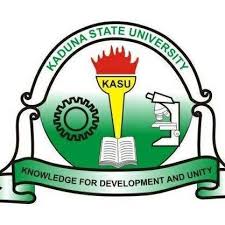Government Keypoints; State/Nation/Society; This government category falls under the topic, of basic concepts of government and we will use this opportunity to define them and provide little details about these basic concepts of government.
Related: Government Keypoints; Power / Authority And Legitimacy
State
A state is a compulsory political organization that maintains a monopoly on the legitimate use of force within a certain geographical territory. States have existed for millennia, but for most of prehistory, people lived in stateless societies. The first states arose about 5,500 years ago in conjunction with the rapid growth of cities, the invention of writing, and the codification of new forms of religion. Today, the modern nation-state is the predominant form of state. Some states are sovereign, while others are subject to external sovereignty or hegemony where ultimate sovereignty lies in another state. The term state is also applied to federated states that are members of a federal union, which is the sovereign state.
Government is the particular group of people, the administrative bureaucracy that controls the state apparatus at a given time. That is, governments are the means through which state power is employed. Each successive government is composed of a specialized and privileged body of individuals, who monopolize political decision-making and are separated by status and organization from the population as a whole. States are immaterial and nonphysical social objects, whereas governments are groups of people with certain coercive powers.
Related; Government Keypoints; The State / The Modern State
Society
A society is a group of individuals involved in persistent social interaction, or a large social group sharing the same geographical or social territory, typically subject to the same political authority and dominant cultural expectations. Societies are characterized by patterns of relationships (social relations) between individuals who share a distinctive culture and institutions. A society can enable its members to benefit in ways that would not otherwise be possible on an individual basis. Both individual and social (common) benefits can thus be distinguished, or in many cases found to overlap. A society can also consist of like-minded people governed by their own norms and values within a dominant, larger society.
Societies may also be structured politically. In order of increasing size and complexity, there are bands, tribes, chiefdoms, and state societies. These structures may have varying degrees of political power, depending on the cultural, geographical, and historical environments that these societies must contend with. Thus, a more isolated society with the same level of technology and culture as other societies is more likely to survive than one in closer proximity to others that may encroach on their resources. A society that is unable to offer an effective response to other societies it competes with will usually be subsumed into the culture of the competing society.
Related; Government Keypoints; Definitions Of Government
Nation
A nation is a large group of people having a common origin, language, and tradition and usually constituting a political entity. A nation is a stable community of people, formed on the basis of a common language, territory, economic life, ethnicity, or psychological make-up manifested in a common culture. A nation is distinct from a people and is more abstract, and more overtly political, than an ethnic group. It is a cultural-political community that has become conscious of its autonomy, unity, and particular interests.
When a nation is coincident with a state, the term nation-state is often used. Some nations are people with a particular belief, such as Vatican City, or ethnic groups, such as Armenia. Others share an idea, such as Democracy in the United States or Communism in China. Some nations are controlled by a small minority who have all the power, such as Saudi Arabia, which holds the nation together with the use of this power. The highest lawful authority of most nations is a constitution, which is a document that states clearly what kinds of power the rulers have and how new laws must be made.
Features: Government Keypoints; State/Nation/Society
State:
- A political organization with a centralized government.
- Maintains a monopoly of the legitimate use of force within a certain geographical territory.
- Arose about 5,500 years ago with the rapid growth of cities, the invention of writing, and the codification of new forms of religion.
- Today, the modern nation-state is the predominant form of state.
- Some states are sovereign, while others are subject to external sovereignty or hegemony.
- The term state is also applied to federated states that are members of a federal union.
Government:
- The particular group of people is the administrative bureaucracy that controls the state apparatus at a given time.
- Governments are the means through which state power is employed.
- Governments are the specialized and privileged bodies of individuals who monopolize political decision-making.
Society:
- A group of individuals involved in persistent social interaction.
- A large social group sharing the same geographical or social territory is typically subject to the same political authority and dominant cultural expectations.
- Societies are characterized by patterns of relationships (social relations) between individuals who share a distinctive culture and institutions.
- A society can enable its members to benefit in ways that would not otherwise be possible on an individual basis.
- Societies may be structured politically in bands, tribes, chiefdoms, and state societies.
- A more isolated society with the same level of technology and culture as other societies is more likely to survive than one in closer proximity to others that may encroach on their resources.
- A society that is unable to offer an effective response to other societies it competes with will usually be subsumed into the culture of the competing society.
Nation:
- A large group of people having a common origin, language, and tradition and usually constituting a political entity.
- A stable community of people formed on the basis of a common language, territory, economic life, ethnicity, or psychological make-up manifested in a common culture.
- A nation is distinct from a people and is more abstract and overtly political than an ethnic group.
- A nation is a cultural-political community that has become conscious of its autonomy, unity, and particular interests.
- Some nations are coincident with a state and are called nation-states.
- The highest lawful authority of most nations is a constitution.
Distinguishing Between Nations and States
The terms “nation” and “state” are often used interchangeably, but they actually refer to two distinct concepts. A nation is a group of people who share a common culture, language, history, religion, values, and/or folkways, while a state is a political entity that exercises sovereignty over a defined territory and population.
Here are some key differences between nations and states:
- Elements:
A state has four essential elements: population, territory, government, and sovereignty. A nation, on the other hand, is characterized by a strong sense of unity and common consciousness, but it does not necessarily require a specific territory or government.
- Geographical Boundary and Extent of Frontiers:
A state is confined to a fixed territory, whereas a nation can extend beyond geographical boundaries and occupy a wide area. The boundaries of a modern state are fixed and cannot be easily extended without creating conflicts with neighboring countries.
- Sovereignty:
Sovereignty is a crucial element of a state but not essential for a nation. A state must have full control and authority over its territory and population, whereas a nation is defined by emotional bonds and cultural similarities.
- Legal Entity:
A state is a legal entity responsible for fulfilling the security and welfare needs of its people, while a nation has little to do with physical needs or responsibilities. It is possible to have multiple nations within a single state, and most modern states are multinational.
- Stability:
A nation is generally more stable than a state. A state’s existence depends on its sovereignty, but a nation can survive without it. For example, after World War II, Germany and Japan lost their sovereignty but continued to exist as nations. They eventually regained their sovereign status and became independent states.
- Creation and Evolution:
A state can be intentionally created by people through physical means, such as dividing a country into separate states. However, a nation emerges slowly and steadily over time through shared experiences and cultural similarities.
In summary, while nations and states share some similarities, they are fundamentally different concepts with unique features and characteristics. Understanding these differences is crucial for effective communication and analysis of political and social issues.







